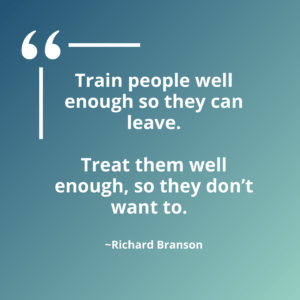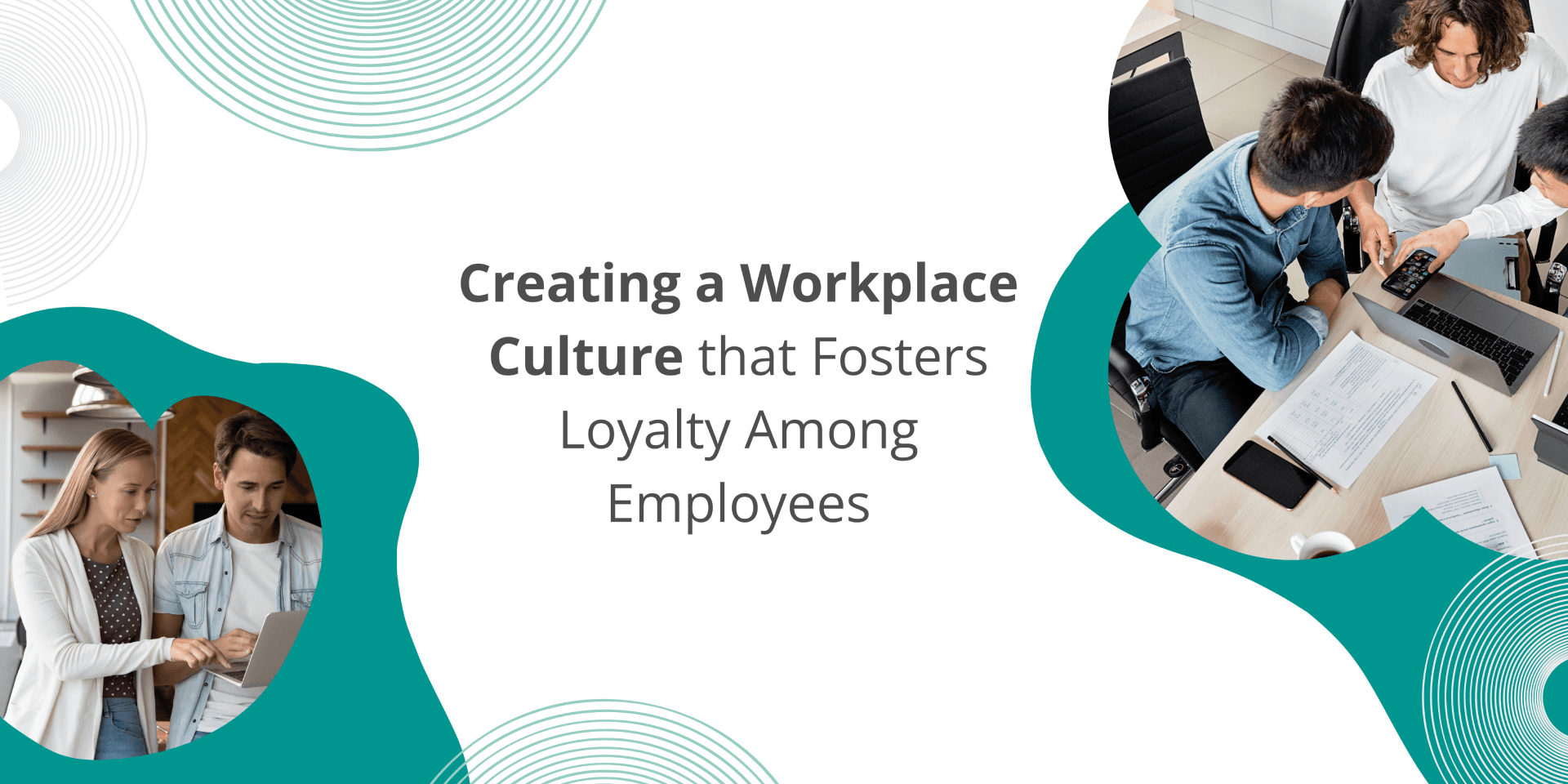What comes to mind with Employee Loyalty? Sticking with one company your whole career, a gold watch at retirement, and total dedication to your employer? Those days are over. However, employee loyalty is still important today, but it looks different.
Now, loyalty is about mutual trust, feeling safe at work, and having a common goal between the employer and employee. Organisations can’t just expect it; they need to work for it through their actions. Let’s look at what loyalty means now and how we can foster it to keep employees around and, ultimately, boost profits.
What is employee loyalty in your business?
In personal relationships, loyalty is easier to understand. We see friends, family, and loved ones as loyal when they have our back. They won’t talk badly about us, steal, or try to hurt us.
What does this look like between employees and employers? Does it mean employees won’t talk badly about their organisation? What counts as “harm” to the business?
How to check employee loyalty.
To understand what your team thinks of your leadership, you need to ask them – simple, right? The best way to check how loyal your employees are is by regularly giving them a chance to provide *honest* feedback. Ideally, your company culture should encourage feedback in all directions.
It’s important to have clear ways for employees to share feedback and concerns with their leaders. When organisations are genuinely committed to improvement and are open about the changes they’re making, it positively affects employee loyalty.
Unlocking the Secrets to Employee Loyalty.
Employee loyalty is about an employee’s commitment and hard work towards their business and leadership team. It means they’re willing to go the extra mile for the organisation’s success and growth.
In the past, loyalty was pretty straightforward: work hard for the company, and in return, you get job security, promotions, raises, and benefits. However, recent challenges like redundancies, the “great resignation,” and debates on remote work have shaken this model.
Now, employees are looking for a deeper connection that aligns with their values. It’s about believing in the company’s mission, feeling valued, respected, and appreciated not just as workers but as people.
This is what drives loyalty today.

8 Key Strategies to Cultivate Unwavering Employee Loyalty.
These tips are designed to help organisations retain their valuable employees by fostering a loyal workplace through strong leadership and employee-centric practices.
1. Show Appreciation:
Let your employees know their hard work doesn’t go unnoticed. Celebrate their successes in team meetings or via personal messages to make them feel valued and increase their loyalty.
2. Effective Onboarding is Key:
A smooth start is essential. An onboarding process that goes beyond the basics can make new employees feel welcomed and clear about their roles, setting a positive tone right from the beginning.
3. Promote Professional Growth:
Investing in your employees’ growth by providing training and advancement opportunities shows your commitment to their future, which can boost their loyalty to the company.
4. Clear Career Paths:
Employees should be aware of advancement opportunities. Discussing career possibilities and skill development regularly can motivate and keep them engaged.
5. Open Communication:
Maintain transparent communication and address issues promptly. This approach builds trust and loyalty by making employees feel valued and integral to your business.
6. Support Work-Life Balance:
Offering flexibility, such as remote work options or flexible hours, can help employees manage their personal and professional lives better, leading to greater job satisfaction and loyalty.
7. Watch for Burnout:
Actively look out for signs of burnout among your staff. Encouraging breaks and holidays, and advocating for healthy work-life boundaries, demonstrates your concern for their well-being.
8. Perks and Incentives:
Offer more than the basic benefits. Tailor perks and incentives to what your employees truly value to make your workplace more appealing and deepen their loyalty.
By implementing these strategies, you can significantly enhance employee loyalty. Adapt these tips to suit your organisation’s specific needs and be flexible to modify them as circumstances evolve.

Unlocking the Power of Employee Loyalty: A Guide to Its Benefits
Employee loyalty programs offer a range of benefits, from boosting engagement to transforming company culture.
Enhanced Employee Engagement.
These programs boost engagement by rewarding employees for their hard work, creating a sense of pride and ownership. This leads to a more positive and motivated workforce.
Increased Retention Rates.
Loyalty programs help keep skilled employees by forming a stronger bond between them and the company. This lowers turnover rates and saves on recruitment and training costs.
Boosted Morale and Job Satisfaction.
Rewards and recognition make a huge difference in job satisfaction. By showing employees they are valued, loyalty programs make for a happier and more committed team.
Improved Productivity and Performance.
When employees feel motivated, they’re more likely to put extra effort into their work. Loyalty programs encourage employees to excel, boosting the organisation’s success.
Positive Impact on Company Culture.
A good loyalty program becomes part of the company’s culture, highlighting loyalty, teamwork, and appreciation. This leads to a better work environment and stronger employer-employee relationships.
Examples of Employee Loyalty Programs.
There are various types of loyalty programs to fit different organisational goals.
Recognition and Rewards Platform.
Online platforms where employees can be publicly recognised and rewarded, offering gifts, vouchers, or personalised experiences.
Professional Development.
Programs providing training, workshops, and certifications to support employees’ growth, enhancing their skills and loyalty.
Flexible Work Arrangements.
Programs offering remote work, flexible hours, or shorter work weeks, acknowledging the importance of work-life balance and increasing satisfaction.
Service Milestone Celebrations.
Celebrating employees’ service milestones is a traditional way to show appreciation for their commitment. This could include personalised gifts, public recognition, or events for significant work anniversaries.
Employee loyalty programs are a smart investment for a company’s success and longevity. These programs help keep valuable employees and foster a culture of commitment, involvement, and mutual respect.

